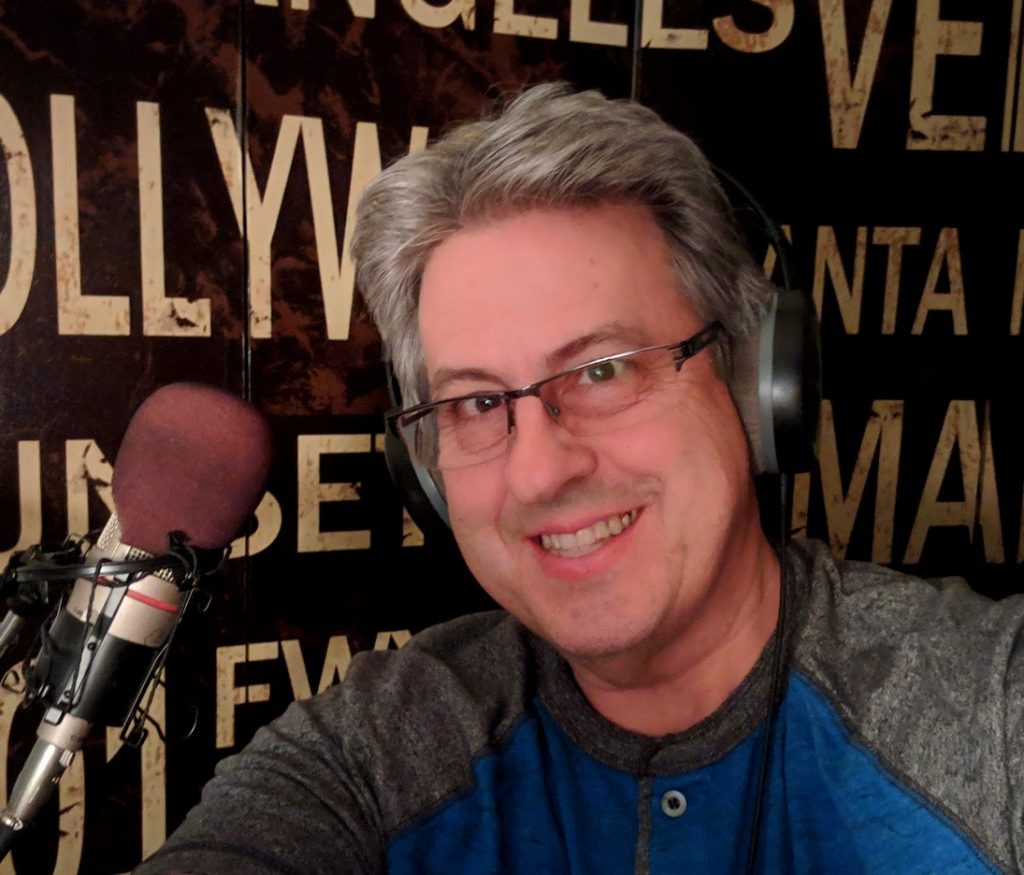Today's episode features musician and songwriter CLAY ROSE, lead singer of the alt country band GASOLINE LOLLIPOPS. I had a great time shootin' the breeze with this fascinating artist while he called from an undisclosed work location in Colorado. Among the many things we discussed were his unconventional upbringing, often defined by Clay's "toxic relationship with the world" paired with drug and alcohol addiction. But that then led to his recent sobriety and the certainty than he is embracing two loves - his music and his family. You'll hear about both, especially when it comes to his band's newest album 'All The Misery Money Can Buy' and some insight on how he wrote these songs. Plus, Clay gives an interesting answer to my traditional final question for songwriters. You'll love the conversation and music from this student of the school of hard knocks. Enjoy the visit!

Dean Olson
StrongWriter On the Radio
* Listen to Clay's Interview with Dean! *
Featured Guest: CLAY ROSE
Front man, Clay Rose was raised between an outlaw, truck-driving father in the mountains of Colorado and a country song-writing mama in the sticks outside of Nashville, Tennessee. Clay’s penchant for open roads and trouble making are the backbone of the Gas Pops’ sound. The rest of the band consists of Don Ambory, Scott Coulter, “Bad” Brad Morse, and Kevin Matthews who all come equipped with music degrees from Chicago, Boston, Jacksonville, and Denver, respectively. They each add flavors of their own background and heritage, further diversifying the band’s signature sound.
Fresh out of the legendary Dockside Studio in Lafayette, Louisiana, Gasoline Lollipops are promoting their new album, All The Misery Money Can Buy, which pursues happiness and the American Dream to the end of the rainbow and chokes on a pot of gold. Gas Pops collaborated with Clay’s song-writing Mama, Donna Farar (“Last Thing I Needed” recorded by Willie Nelson and Chris Stapleton) to create this politically-charged union of soul music and Southern rock.
Gasoline Lollipops are three-time winners of Colorado Daily’s “Best Local Band” award, and two-time winners of Denver Westword’s “Best Country Band” award. Over the last four years, they have toured throughout the U.S., Belgium, the Netherlands, and Belize. In 2018 they made Billboard’s top 10 Spotify chart, as well as Pandora’s top 10 Trend Setters list. Today, the Gas Pops continue to bend genres and electrify live audiences with ferocious sincerity.
Although his career as a band leader has only spanned a decade, Clay’s solo songwriting career began in 1997. He has written and released nine all-original albums to date. Clay Rose’s ability to tell stories that seamlessly cross genres from folk, to punk, to klezmer, to country, has won him an array of awards. These include: Best Music Video at the Mile High Horror Film Festival 2012, for “Don’t Be Afraid; It’s Only Death” by The Widow’s Bane, Gasoline Lollipops’ Best Country Band Award, by Westword Magazine 2015 and 2018, as well as Colorado Daily’s Best Local Band award for 2015, 2016, and 2017.
Clay Rose was born to a draft-dodging pot farmer on the lam, and a country songwriter. What did these two have in common? They both did business with Willie Nelson. Clay’s mother, Donna Farar, wrote “Last Thing I Needed” which was recorded by Willie on his 1982, Always On My Mind. Clay’s father provided Willie with medicine throughout the 70’s until the law sent him skipping to Colorado from Arkansas on a midnight train. When Donna’s song hit number 1 on the Billboard charts, she moved to Tennessee to be closer to Nashville, and Clay began his disjointed childhood, straddled between the Rocky Mountains, and the backwoods of Tennessee.
© Copyright 2020 – StrongWriter Productions
Any additional music used is for illustrative purposes only and no infringement is intended. “Copyright Disclaimer Under Section 107 of the Copyright Act 1976, allowance is made for “fair use” for purposes such as criticism, comment, news reporting, teaching, scholarship, and research. Fair use is a use permitted by copyright statute that might otherwise be infringing. Non-profit, educational or personal use tips the balance in favor of fair use.”
